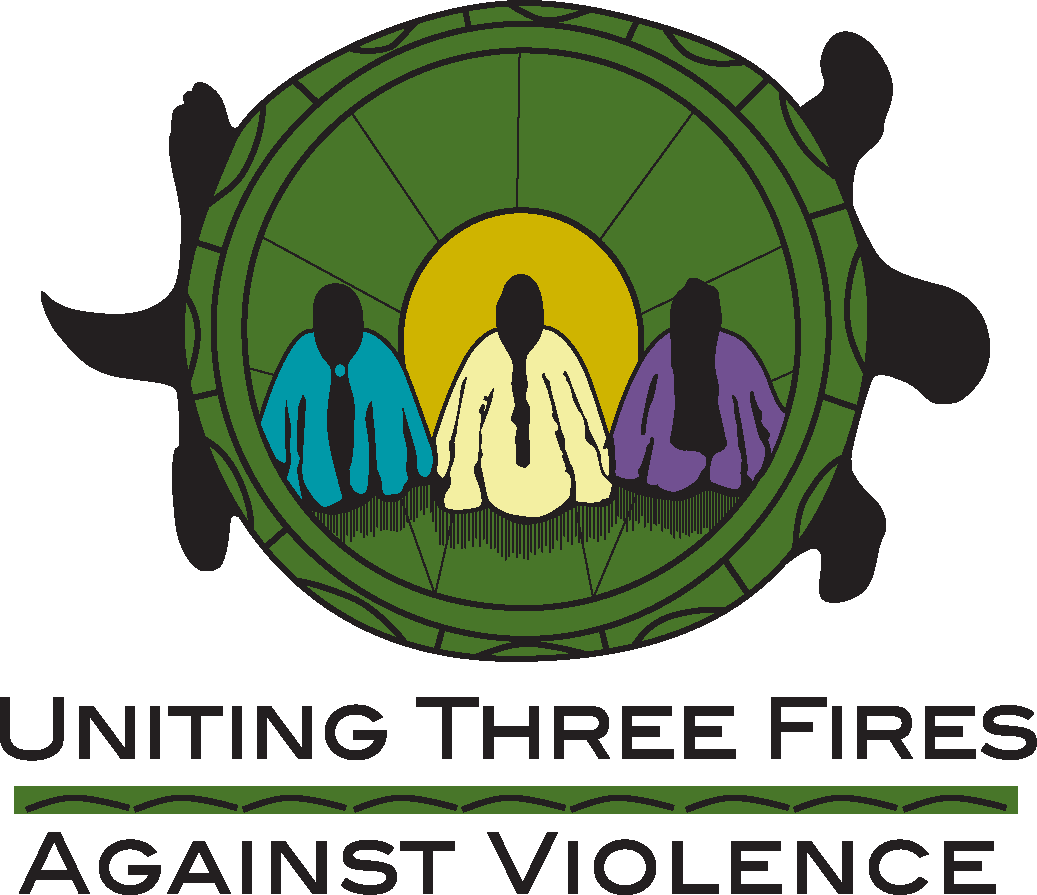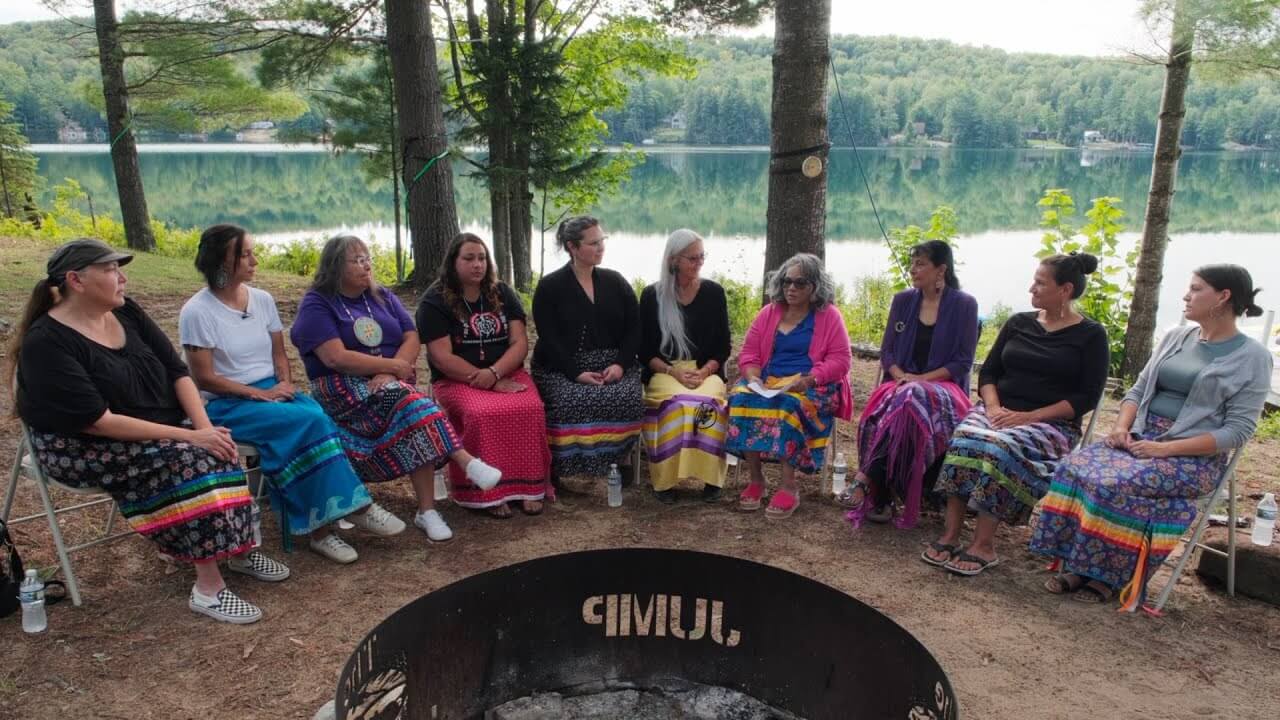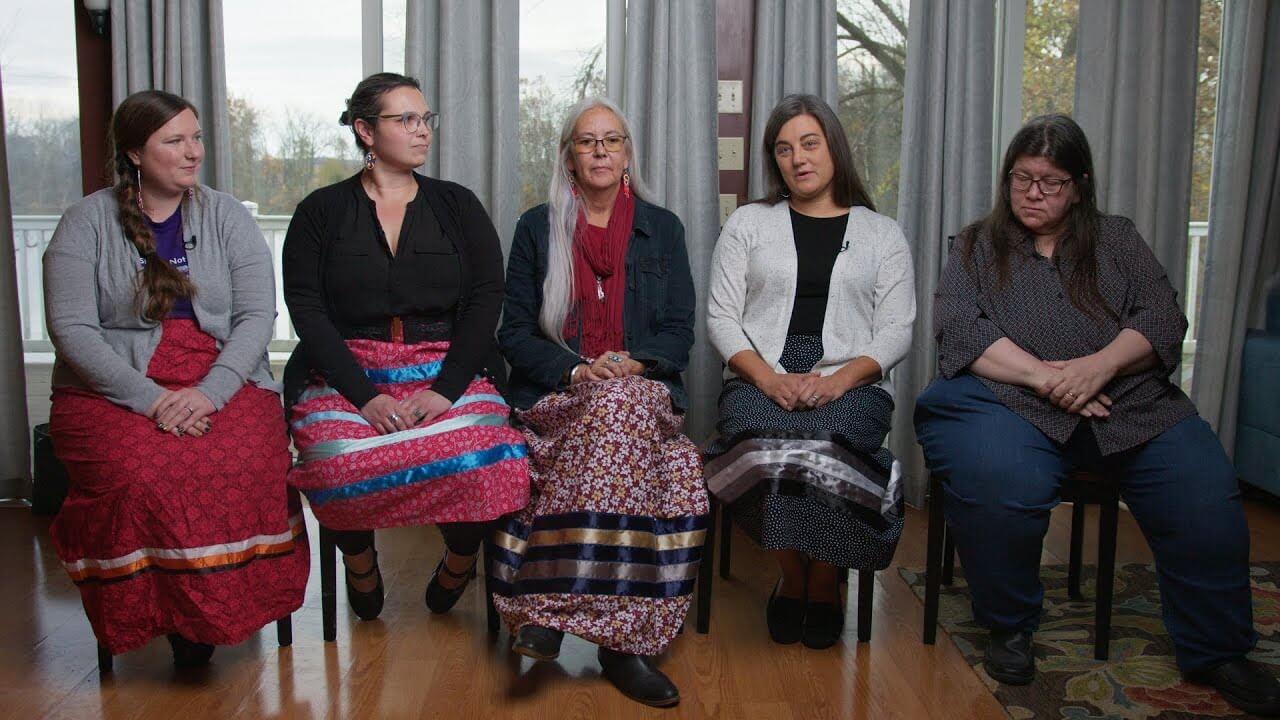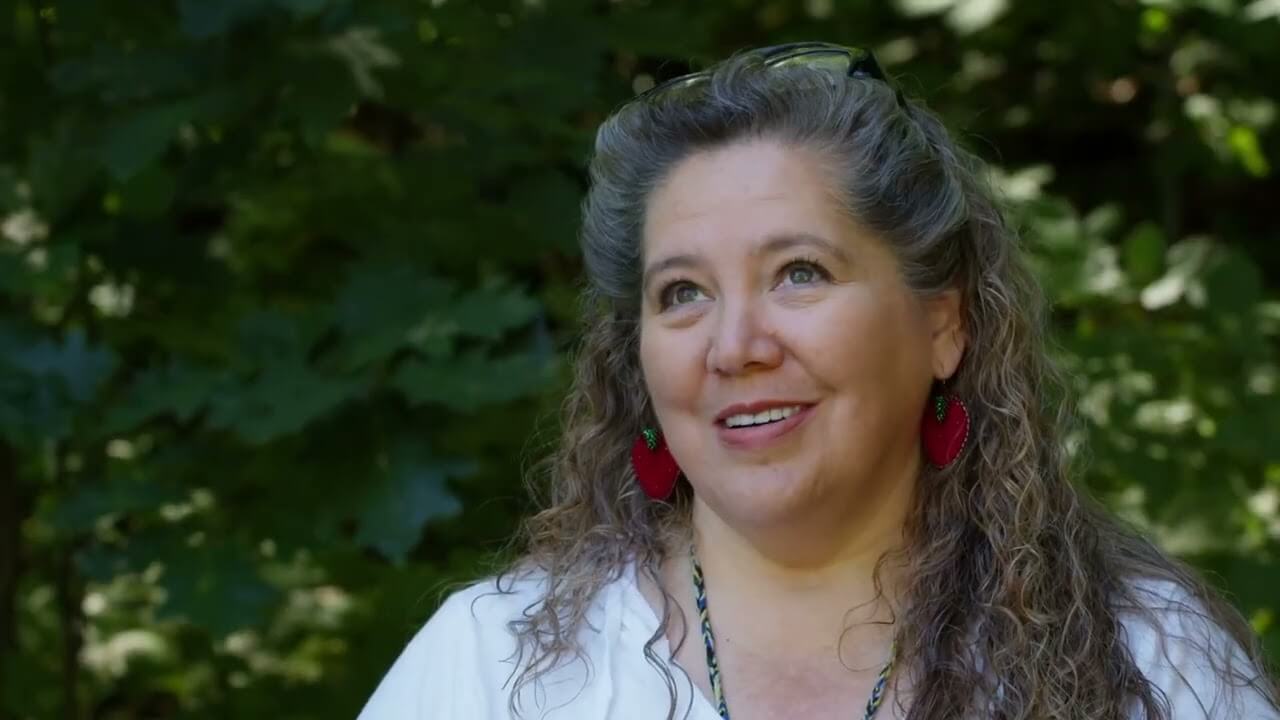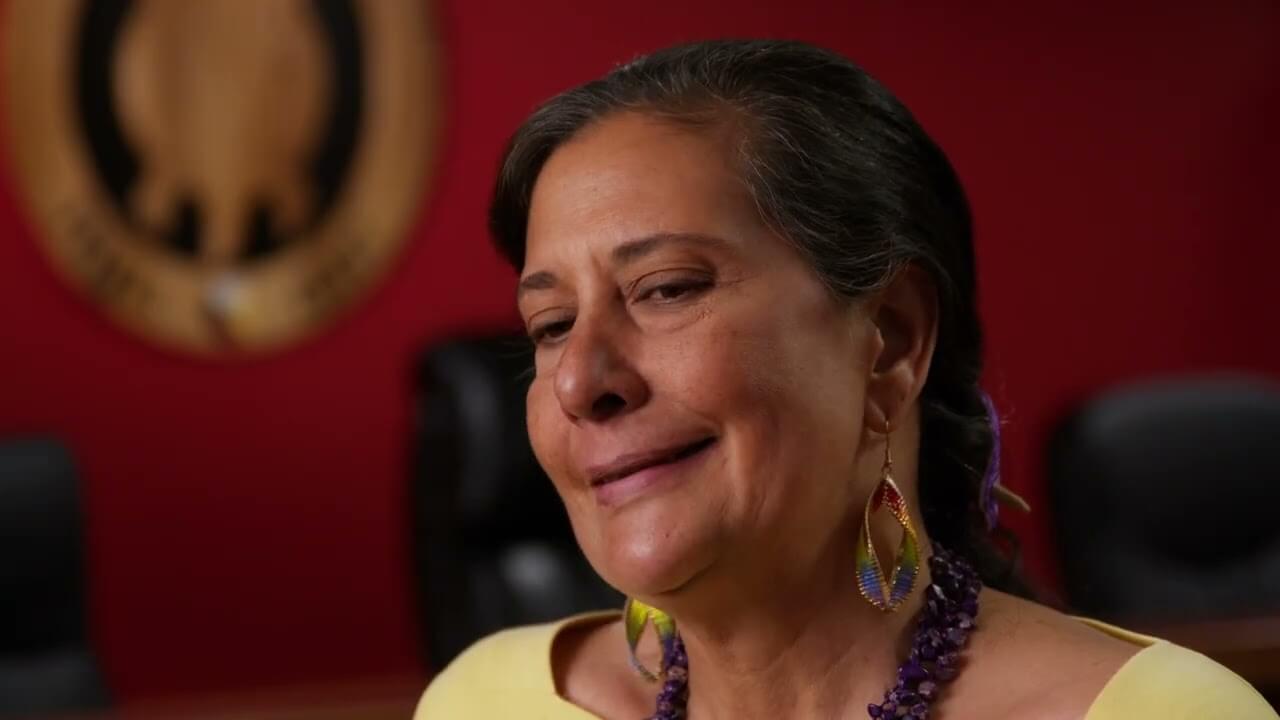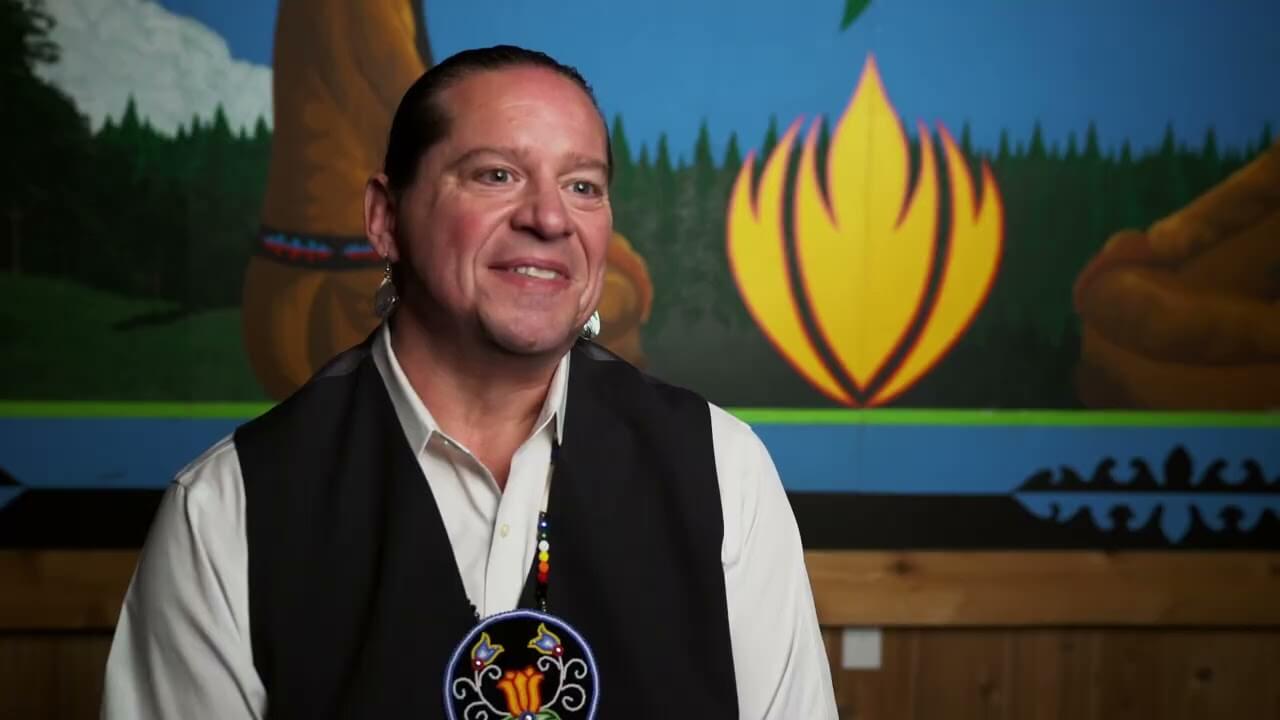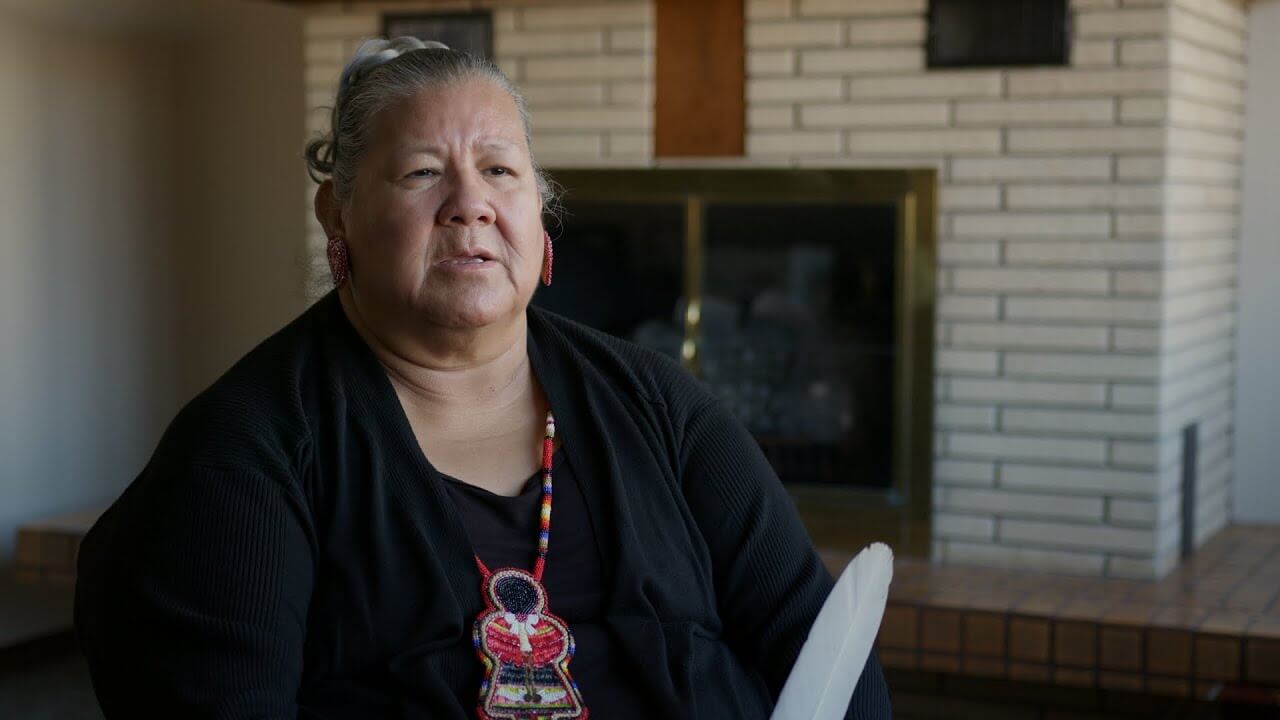With the support from Indigenous advocates, wisdom keepers, and cultural leaders from across Tribal communities throughout Michigan, Uniting Three Fires Against Violence created a video series that is intended for individuals and communities across Michigan that may work with our Indigenous/Tribal/Native survivors who have experienced gender based violence. The videos are meant to be introductory and foundational to inspiring knowledge on how historical trauma continues to impact responses to violence against women living in and outside of their Tribal communities. The videos collectively share how culture and history intersects with providing culturally honoring services, which is often different from Western/historically funded approaches to safety, healing and justice.
Voices of Wisdom Talking Circle
This video provides a detailed look at the impact of historical trauma through multiple strategical tactics applied by the United States government across Indian Country on the lives of individual women, Tribes, and communities. It offers in real time examples of resiliency; in the words of one of the circle participants “Indigenous Women always fighting for what is needed in the community”.
This video looks across generations at how and when culture may re-enter the lives of Indigenous people creating pathways to home, safety, change, and identity. It is an educational tool that challenges concepts of western practices as the “best” or only practical path to healing. The circle helps to reveal the power of wisdom, resources, culturally honoring, cross generational trauma informed supports that exist within our Tribal programs and communities. This video/circle can inspire growth in knowledge and ultimately lead to change.
Culturally Honoring Victim Services
This video hosts the Pokagon Band of Potawatomi Victim Services team sharing the difference and impact of culturally honoring versus standardized historically funded services in supporting victims in Tribal communities. The Tribal victim services program takes a seven-generation approach acknowledging past, present, and future generations.
The role and impact of historical trauma, blood memories and cultural/traditional responses are key components to culturally honoring approaches.
This video is key in clarifying the differences between western systems social services approaches and Tribal culturally honoring practices where families and survivors move from the role of systems to families and communities.
Diverse Tribal Advocacy Voices
Indigenous women from unrelated Tribal programs, coalitions, and communties engage in dialogue addressing culturally honoring services. They engage in conversation related to identifying, strategizing, and overcoming barriers to advocacy, and ensuring culturally honoring responses are victim centered and trauma informed.
The role and importance of the sacred medicines and food in providing culturally honoring services is discussed.
Visions and hopes for future generations conclude the conversations within this video.
Restorative Justice Judicial Practices
Trauma informed, culturally honoring practices focused on healing are foundational in restorative justice traditions and approaches. This video provides a clear comparison and distinction between Tribal law/courts and Western judicial systems.
Restorative justice is dedicated to community wholeness and healing, return to a place of traditional teachings, respect, love, kindness, honor: embracing and enacting the Seven Grandfather teachings.
Traditional Tribal justice response builds a new table where elders, veterans, leaders, Tribal citizens of all ages join together in honor and respect to build and sustain community.
Sacred Medicines Supplemental Tool
This video is dedicated to knowledge of the identity of the four scared medicines, how, when, and why they are used in smudging/ceremony. Water as a scared element/medicine and its connectedness to women in the circle of life is a topic of discussion.
The information/education presented in this video was created to broaden understanding of cultural practices and terminology as it relates to sacred medicines and ceremonies specific to Michigan’s Three Fires Confederacy Tribal Nations.
This information is intended to be supportive/helpful in digesting language and information presented throughout the UTFAV cultural video series. However, it should be noted that the four sacred medicines extent to Tribal Nations beyond Michigan but vary from region to region.
Community Response Food Sovereignty
Food in Tribal communities brings everyone together. The United States Government in many instances removed Tribal Nations from their ancestral lands to areas where they lost the ability to sustain their ancestral ability to plant, grow, hunt, fish. The places where Tribes were relocated often took away resources to support growing, gathering, and hunting knowledge they had sustained for thousands of years. This action was an assault on the physical and spiritual health of indigenous people/nations. This action extended beyond food to spiritual practices, ceremonies, communities coming together all interconnected to traditional food gathering and sharing.
Food sovereignty at Nottawaseppi Huron Band of Potawatomi is demonstrated in this video as a tool/option for returning to sustainable Tribal culturally honoring community practices promoting individual and community health and wellness.
Videos in this section contain the voices and wisdom of Indigenous women sharing the impact of culture and experience on their lives and work in their Tribal communities
Auntie to Many in her Tribal Community
Aunties are teachers and holders of circles in Tribal communities. Jackie Minton shares in this video how important bringing youth and families into the circle through culture, singing, dancing being part of the community has been on her life journey. Cultural identity happens at different junctures across lifespans.
Being in the circle can awaken and support indigenous identity and belonging and support healing from historical and recent trauma.
Cultural Teachings from LVD Roundhouse
This video contains an explanation, history, role and purpose of the Lac Vieux Dessert Tribal Roundhouse Ceremonial building.
Tribal Leader and former Tribal Victim Advocate Melissa McGeshick shares how traditional and cultural practices offer teachings and pathways to cultural, generational, and community healing.
This project was supported by the Training for Crime Victim Service Professionals awards E20221630-001 and E20233026-00 awarded by the Division of Victim Services, Michigan Department of Health and Human Services. The opinions, findings, and conclusions or recommendations expressed in this publication/program exhibition are those of the author(s) and do not necessarily reflect the view of the US Department of Justice or the Michigan Department of Health and Human services
